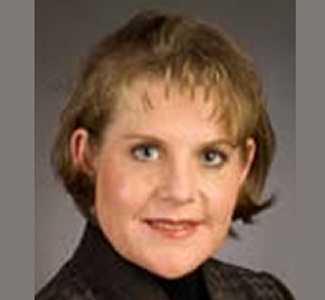
Susan C. McKarns
Associate Professor of Surgery and Molecular Microbiology & Immunology
Molecular Microbiology & Immunology,Surgery,
mckarnss@health.missouri.edu
(573) 884-1722
Fields of Interest
- Cellular and Molecular Immunology
Education
- Ph.D., 2001, Michigan State University
Research Statement
T Cell Tolerance, Autoimmunity, Epigenetics, and Regulation of T Cell Differentiation
The goal of our laboratory is directed towards the prevention and treatment of human autoimmune disorders, inflammatory diseases, and cancer. TGF-b is a family of secreted proteins that have profound and diverse biological affects on most tissues including the immune system. Cellular responses to TGF-b often change as cells undergo differentiation and/or migrate into new surroundings. Altered TGF-b signaling has been proposed as a mechanism for the diversity of TGF-b responsiveness. The results from our laboratory propose an alternative model for TGF-b on cytokine production. We predict that it is not the signal that changes but rather the cell. Our overall working hypothesis, and the focus of our work, is that T cell autonomous epigenetic changes in TGF-b responsive loci permit signals to be received differently.
Selected Publications
Miller, P.G., Bonn, M.B., Franklin, C.L., Ericcson, A.C., McKarns, S.C. (2015) TNF Receptor Type 2-deficiency Contributes to Sex-bias Spontaneous Autoimmunity: A Role for Gut Microbiome. J. Immunol. [Epub ahead of print, 10/16/2015].
Miller, P.G., Bonn, M.B., and McKarns, S.C. (2015) Transmembrane TNF-TNFR2 Impairs CD4+ Th17 Differentiation by Promoting Il2 expression. J. Immunol. 195(6):2633-47.
Bodeman, C.E., Dzierlenga, A.L., Tally, C.M., Mulligan, R.M., Lake, A.D., Cherrington, N.J., McKarns, S.C. (2013) Differential Regulation of Hepatic Oct 1, Oatp1a4, BSEP, and MRP2 Transporter Expression in Lymphocyte-deficient mice associates with IL-6 Production. J Pharmacol Exp Ther., 347(1):48-56.
Aroor, A., McKarns, S.C., Nistala, R.N., DeMarco, V., Whaley-Connell, A., and Sowers, J. R. (2013). DPP-4 inhibitors as therapeutic modulators of immune cell function and associated cardiovascular and renal insulin resistance in obesity and diabetes. Cardiorenal Med.; 3:48–56.
McKarns SC, Kerkvliet NI, Dean JH, Bonn MB, Cohen MD, Franko J, Laiosa MD, Lawrence BP, Luebke RW, Luster MI, Miller PG, Palmer RK, Pfau JC, Raman P, Regal JF, Rodgers KE, Schondelmeyer RS, Zhang X, and Burns-Naas LA. (2012) Immunotoxicology: Fifty years of global scientific progress. (Poster) J Immunotoxicol. 2012 Oct;9(4):339-40. doi: 10.3109/1547691X.2012.658530. Epub 2012 Oct 19.
McKarns, S. C. and Schwartz, R. H. (2008) Biphasic Regulation of Il2 Transcription in CD4+ T cells: Roles for TNF-a Receptor Signaling and Chromatin Structure. J Immunol. 181(2):1272-81.
McKarns, S. C. and Schwartz, R. H. (in preparation) a TGF-b1 represses transcription of IL-2 during the priming of naïve, but not during the re-challenge of previously activated CD4+ T cells (in preparation).
McKarns, S. C. and Schwartz, R. H. (2005) Distinct Effects of TGF-b1 on CD4+ and CD8+ T cell survival, division, and IL-2 production: A role for T cell intrinsic Smad3. J. Immunol., 174: 2071-2083.
McKarns, S. C. TGF-b1: Control of T Cell Responses to Environmental Antigens. In: Encyclopedic Reference of Immunotoxicology (ed. H.-W. Vohr) (2004) Springer Press Heidelberg, Germany.
McKarns, S. C., Schwartz, R.H., and Kaminski, N.E. (2004) Smad3 is essential for TGF-b1 to suppress IL-2 production and TCR-induced proliferation, but not IL-2-induced proliferation. J. Immunol., 172: 4275 – 4284.
McKarns, S. C., Letterio, J.J., and Kaminski, N.E. (2003) Concentration-dependent effects of TGF-b1 on immunoglobulin production in vitro: IgA secretion is not enhanced by TGF-b1 in LPS-activated Smad3-null B cells. Int Immunopharmacol. 3(13-14):1761-74.
McKarns, S. C. and Kaminski, N.E. (2000). TGF-b1 differentially regulates IL-2 expression and [3H]-thymidine incorporation in CD3e mAb- and CD28 mAb-activated splenocytes and thymocytes. Immunopharm. 48(2):101-115.
